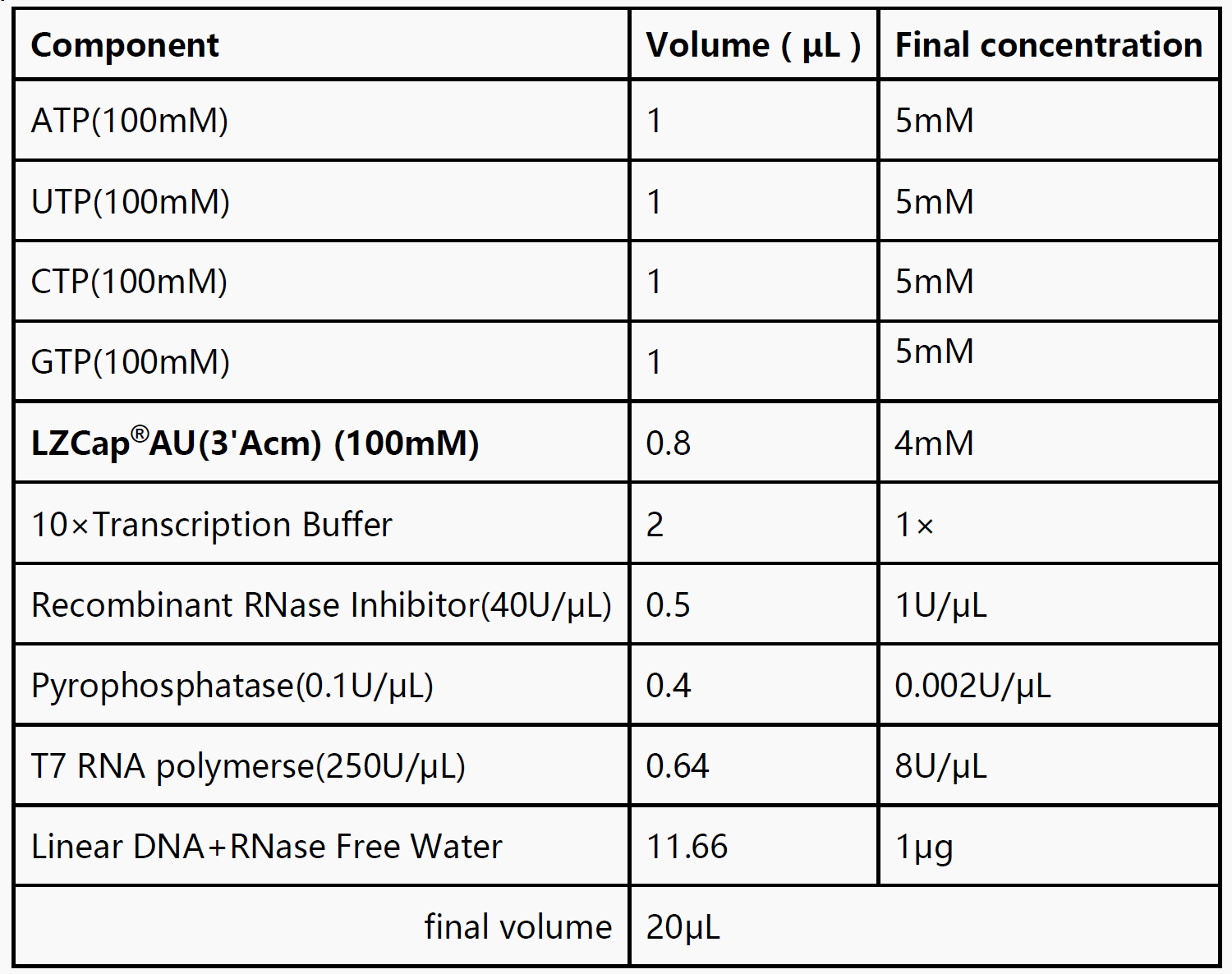Description
LZCap AU (3'Acm) is a cap1 analog. The product is used for transcription with the initial sequence of 5'AU3', and the natural cap1 structure is produced by Cap1 transcription capping. Compared with Cap0 produced by traditional capping method, the cap1 structure produced by CapAU (3'Acm) enables the SaRNA to have higher activity and translation efficiency in vivo.
US patent approved.
Components
|
Cat No. |
Name |
Size |
|
HN3005 |
Cap AU (3'Acm) (100mM) |
100 μL |
|
1 mL |
Product Details
|
Molecular Formula |
C34H47N13O25P4 (Free acid) |
|
Molecular weight |
1161.71(Free acid) |
|
Concentration |
100± 3 mM |
|
Purity |
HPLC ≥95% |
LZCap® DNA Template Design
LZCap®AU(3'Acm) is suitable for AG-initiated sequences. As shown in the figure below, the T7 promoter (underlined) followed by the AG sequence can effectively initiate transcription.

Protocol
1. Thaw components required for the experiment on ice.
2. Refer to the following reaction system to configure the transcription system at room temperature.

Modified N1-Me-pUTP can be used in place of wild-type UTP. The modified N1-Me-pUTP reduces the immunogenicity of mRNA. Henovcom can also provide modified nucleotide N1-Me-pUTP (Cat. No.: HN1002 ).
Notes:
1) LZCap®AU(3'Acm) is suitable for T7 promoter transcription vector with 5 ‘AU 3’initiated sequences, which needs to be considered when constructing the vector.
2) The reagents, consumables and containers used in the experiment are free of RNase contamination.
3) It is recommended to use a linearized DNA template for transcription.
4) When modified nucleotides were used in place of wild-type nucleotides, the final concentration of the reaction was unchanged.
5) If the PCR product is used as the transcription initiation DNA template, the amount of DNA template can be reduced by half.
3. Mix the prepared reaction solution, centrifuge briefly, and incubate at 37°C for 2-3 hours. If the transcript length is less than 100nt, increase the reaction time to 4-8 h.
General Safety Profile
|
Result and Conclusion |
|
|
Cytotoxicity Test |
No cytotoxicity was observed with the modified nucleoside in multiple cell lines |
|
Polymerase Inhibition Study |
The modified nucleoside is neither an inhibitor nor a substrate of human RNA and DNA polymerases and is therefore not integrated into the genome |
|
Ames Test* |
No genotoxicity was observed in the Ames test |
Storage
This product could be stored at -25~-15 ℃ for two years.
Precautions
- For your safety and health, please wear personal protective equipment (PPE), such as laboratory coats and disposable gloves, when operating with this product.
- For research use only.

